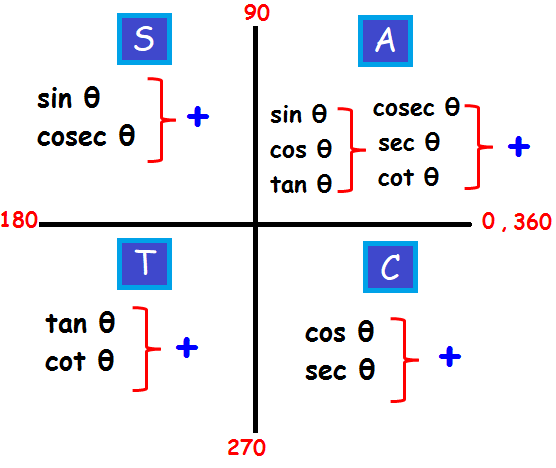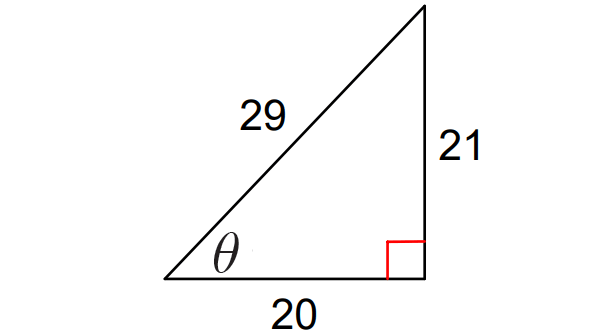SIMILAR TRIANGLES WORKSHEET
1. Determine whether the two triangles given below are similar. Justify your answer.
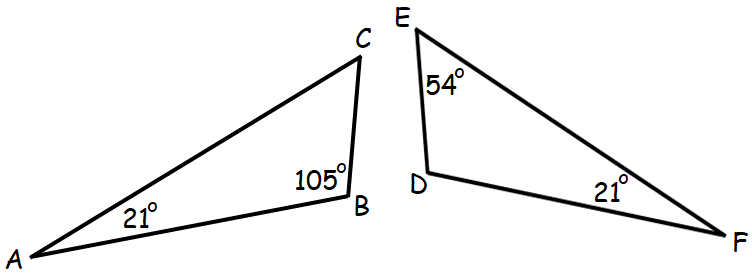
2. Determine whether the two triangles given below are similar. Justify your answer.
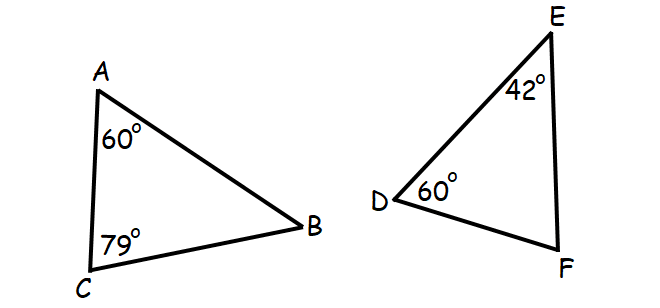
3. For what value of x, is triangle ABC similar to triangle DEF?
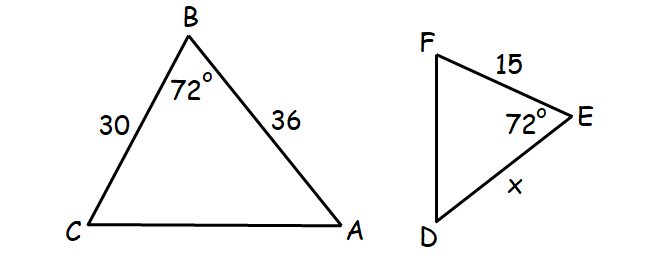
4. Find the value of h in the diagram given below.
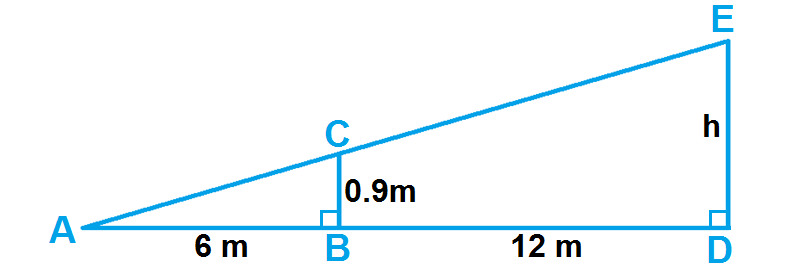
5. In the diagram given below, if AC and DE are parallel, find the value of h.
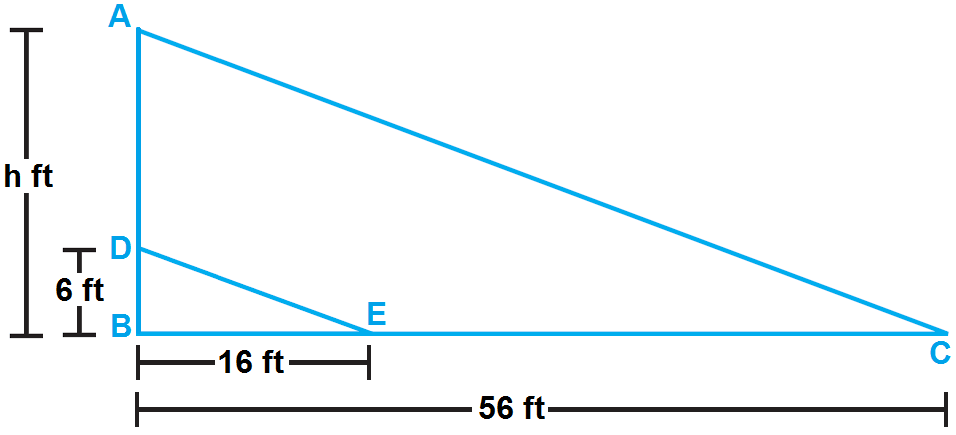

Answers
1. Answer :
By Triangle Sum Theorem, in Δ ABC,
∠A + ∠B + ∠C = 180°
21° + 105° + ∠C = 180°
126° + ∠C = 180°
Subtract 126° from both sides.
∠C = 54°
In triangles ABC and DEF, we have
∠A = ∠F = 21°
∠E = ∠C = 54°
Two angles of one triangle are congruent to two angles of another triangle.
By Third Angle Theorem, the third pair of angles must also be congruent.
∠B = ∠D = 105°
So, the triangles ABC and DEF are similar triangles.
2. Answer :
By Triangle Sum Theorem, in Δ ABC,
∠A + ∠B + ∠C = 180°
60° + ∠B + 79° = 180°
∠B + 139° = 180°
Subtract 139° from both sides.
∠B = 41°
By Triangle Sum Theorem, in Δ DEF,
∠D + ∠E + ∠F = 180°
60° + 42° + ∠F = 180°
102° + ∠F = 180°
Subtract 102° from both sides.
∠F = 78°
In triangles ABC and DEF, we have
∠A = ∠D = 60°
And no more pairs of angles are not congruent.
So, the triangles ABC and DEF are not similar triangles.
3. Answer :
Let us assume the given two triangles are similar.
So, the ratio of the corresponding sides must be equal.
By taking the vertices of the triangle in the order (given) ABC and DEF, we have
AB/DE = BC/EF
36/x = 30/15
Take reciprocal on both sides.
x/36 = 15/30
x/36 = 1/2
Multiply both sides by 36.
x = (1/2) ⋅ 36
x = 18
4. Answer :
In the diagram given, we can consider two triangles ABC and ADE.
In triangles ABC and ADE, we have
∠B and ∠D are right angles
∠A is common angle
Two angles of one triangle are congruent to two angles of another triangle.
By Third Angle Theorem, the third pair of angles must also be congruent.
So, the triangles ABC and ADE are similar triangles.
In similar triangles, the ratio of the corresponding sides are equal.
AB/AD = BC/DE ----(1)
Find the length of AD :
AD = AB + BD
AD = 6 + 12
AD = 18
Substitute AB = 6, AD = 18, BC = 0.9 and DE = h in (1).
(1)----> 6/18 = 0.9/h
Take reciprocal on both sides.
18/6 = h/0.9
3 = h/0.9
Multiply both sides by 0.9
3 ⋅ 0.9 = h
2.7 = h
5. Answer :
In the given diagram, we can consider two triangles ABC and DBE.
Given : AC and DE are parallel.
The parallel sides AC and DE are cut by the transversal EC.
Then ∠E and ∠C are corresponding angles.
When two parallel lines cut by a transversal, the corresponding angles are congruent.
So, ∠E and ∠C are congruent.
In triangles ABC and DBE, we have
∠E ≅ ∠C
∠B is common angle
Two angles of one triangle are congruent to two angles of another triangle.
By Third Angle Theorem, the third pair of angles must also be congruent.
So, the triangles ABC and DBE are similar triangles.
In similar triangles, the ratio of the corresponding sides are equal.
AB/DB = BC/BE
Substitute AB = h, DB = 6, BE = 16 and BC = 56.
h/6 = 56/16
Multiply both sides by 6.
h = (56/16) ⋅ 6
h = 21
Kindly mail your feedback to v4formath@gmail.com
We always appreciate your feedback.
©All rights reserved. onlinemath4all.com
Recent Articles
-
Trigonometry Even and Odd Iidentities
May 04, 24 12:15 AM
Trigonometry Even and Odd Iidentities -
SOHCAHTOA Worksheet
May 03, 24 08:50 PM
SOHCAHTOA Worksheet -
Trigonometry Pythagorean Identities
May 02, 24 11:43 PM
Trigonometry Pythagorean Identities
